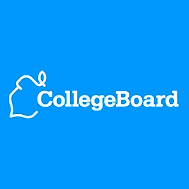 The College Board has released its ninth annual report on the participation of students in the high school graduating Class of 2012 in the Advanced Placement program.
The College Board has released its ninth annual report on the participation of students in the high school graduating Class of 2012 in the Advanced Placement program.
Close to 1 million graduates of public high schools in 2012 took an AP examination. More than 127,000 high school teachers taught an AP course in the 2011-12 academic year. Curriculum and course outlines are developed for The College Board by college faculty members after an elaborate process of surveying the content of courses in similar subjects at colleges nationwide. Course descriptions, teacher guides, publications, and online teleconferences are made available by The College Board to high school teachers to help them prepare their students for the AP examinations.
College admissions officers are impressed with the records of students who make the extra effort and take the grading risk in AP courses. Now, presented with a transcript that shows a student has faced up to these rigorous programs of study, admissions officers often confer a deserved advantage in the admissions process to students of all races who enroll in AP programs. Some, higher education institutions give college credit for students who successfully complete AP courses. But the number of colleges offering credit for high achieving students in AP courses has dwindled in recent years.
The number of African American students participating in the AP program continues to soar. In 2005, there were 38,000 Black students who took AP examinations. Five years later in 2010, the number had almost doubled to 73,000. In 2012, 88,198 African American students took AP examinations. Despite the large increase in Black AP test takers, African Americans still are underrepresented in the AP test-taking pool. Blacks made up 14.5 percent of the graduating Class of 2012 but were only 9.2 percent of all AP test takers. Progress is being made. In 2007, Blacks were 7.4 percent of all participants in the AP program.
The most popular AP test for African Americans was the English language and composition test. Other popular tests for Black students in 2012 were examinations in English literature, U.S. history, U.S. government and politics, and world history.
AP exams are graded on a scale of 1 to 5. A score of 5 on the AP exam is equivalent to receiving a grade of A in a similar college course. An AP test score of 4 is equivalent to a college grade of B and so on down the line. Students scoring 3 or above on the AP test are deemed to have successfully completed the AP course.
While Blacks were 14.5 percent of all members of the Class of 2012 and 9.2 percent of all AP program participants, African Americans were only 4.4 percent of all students who scored 3 or above on at least one AP test. Here too, there has been improvement. In 2007, Blacks were 3.3 percent of all successful AP test takers.










